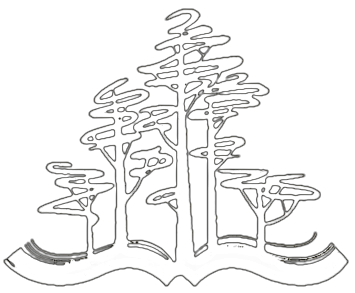Summer School on the Russian Literature. 2021.
Vol. 17. № 2
The article is devoted to a little-known and underestimated monument of Russian Baroque poetry — the autobiographical work of John of Tobolsk (Maksymowicz) The Journey from Chernigov to Siberia (1711). The article defines the significant place of this text in the history of Russian literature of the Era of Change (17th–18th centuries), shows the organic interweaving in it of the experiences of a private person and the interests of the emerging empire. The combination of travelogue and biography traits, as well as elements of a lyrical and state-publicistic nature, was reflected in the artistic form of Journey, which was experimental for its time.
Keywords: John of Tobolsk (Maksymowicz), Journey, empire, Stroganovs, travelogue, syllabic poetry, Petrine era.
Keywords: John of Tobolsk (Maksymowicz), Journey, empire, Stroganovs, travelogue, syllabic poetry, Petrine era.
Alexey Popovich
John of Tobolsk (Maksymowicz)’s Journey
A Private Person in the Background of the Creation of the Empire
A Private Person in the Background of the Creation of the Empire
The article discusses the aspect of a scenario’s problem in philology and suggests the view on a scenario as a completed work. On the example of Roadside Picnic and The Machine of wishes by A. N. and B. N. Strugatsky it shows the differences between the primary text and the scenario and proves the principles of the initial work’s transformation.
Keywords: scenario, the secondary text, Roadside Picnic, The Machine of wishes, A. N. Strugatsky, B. N. Strugatsky.
Keywords: scenario, the secondary text, Roadside Picnic, The Machine of wishes, A. N. Strugatsky, B. N. Strugatsky.
Ann Altsibeeva
The scenario as a completed work
Roadside Picnic and The Machine of wishes scenario by A. N. and B. N. Strugatsky.
Roadside Picnic and The Machine of wishes scenario by A. N. and B. N. Strugatsky.
The article, relying on archival sources, covers the chronology and content of the discussion that arose in 1933 around the Pushkin Encyclopedia project, prepared by Moscow researchers headed by M. Tsyavlovsky. The structure of the publication, its addressing, the principles of compiling the vocabulary — these are the main points around which a dispute between Muscovites and Leningraders was built. The minutes of the open meeting of the Pushkin Committee of the USSR Academy of Sciences of November 27, 1933 in Leningrad, presented as an appendix to the article, continues — three decades later — the publication of Moscow materials, carried out by I. Chistova, covering the work on the encyclopedia project in the fall of 1933
Keywords: Alexander Pushkin, Pushkin Encyclopedia, Pushkin Studies, History of Literary Criticism, Pushkin Committee.
Keywords: Alexander Pushkin, Pushkin Encyclopedia, Pushkin Studies, History of Literary Criticism, Pushkin Committee.
Vladimir Turchanenko
A discussion about the Pushkin Encyclopedia in the 1930s
The article investigates the intertextual continuity between V. F. Khodasevich’s and K. K. Sluchevsky’s
poems. There are described the characteristic features of the poetry of Sluchevsky and Khodasevich, bringing their compositions closer together, and revealed the patterns of formation of identical images and motives.
Keywords: K. K. Sluchevsky, V. F. Khodasevich, symbolism, intertext.
poems. There are described the characteristic features of the poetry of Sluchevsky and Khodasevich, bringing their compositions closer together, and revealed the patterns of formation of identical images and motives.
Keywords: K. K. Sluchevsky, V. F. Khodasevich, symbolism, intertext.
Ekaterina Kosova
Konstantin Sluchevsky and Vladislav Khodasevich
Genesis of related images and motives
Genesis of related images and motives
The article discussed the functions and semantic load of mise en abyme in Goncharov’s novel The Precipice. Attempts of the main character Boris Rayskiy to create a novel is considered an example of mise en abyme, as well as the resemblance of the first part of The Precipice and Rayskiy’s short story Natasha to the novel as a whole. The conclusion is the affinity of novel’s structure for the complex system of mirrors created due to particularities of mise en abyme in the The Precipice.
Keywords: Ivan Goncharov, The Precipice, mise en abyme.
Keywords: Ivan Goncharov, The Precipice, mise en abyme.
Mariia Nachinkova
Mise en abyme in Ivan Goncharov’s novel The Precipice
The evolution of the motive of Echo and Narcissus taken from the antique mythology is considered throughout the complete creative work of Akhmatova against the background of the poetry of her contemporaries.
Keywords: Anna Akhmatova, Narcissus, Echo, Xaver Schaffgotsch.
Keywords: Anna Akhmatova, Narcissus, Echo, Xaver Schaffgotsch.
Roman Timenchik
The Nymph Echo in Akhmatova’s Poetry
Contacts
summerschool@list.ru
В оформлении сайта использованы материалы Freepik.


